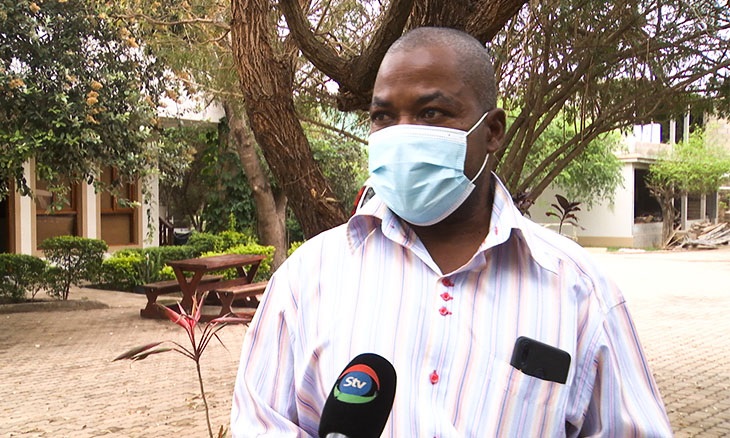Mozambique: Malawian business delegation to assess competitiveness of Quelimane Port
Mozambique: Private companies threaten to switch off water supply – AIM

Photo: O País
The Association of private Mozambican Water Suppliers (AFORAMO) has threatened to switch off and abandon water supply in several parts of Maputo, as from 6 November, following what they claim are unlawful moves by the government’s Water Supply Investment and Assets Fund (FIPAG) and the Water and Sanitation Infrastructures Administration (AIAS).
Addressing a press conference on Wednesday in Maputo, AFORAMO Chairperson Adriano Chirute accused the two government bodies of extending the public network to several neighbourhoods where, over the years, drinking water had been run by private suppliers.
“Under the current conditions, it is unsustainable to continue water supply activity by the private suppliers and the common feeling among the members is to give up these areas which, according to FIPAG and AIAS, have been granted to them under an exclusive contract”, Chirute said, adding that they will not wait to be expelled.
The decision, he stated, follows the moves on the ground where, over the last few months, they have been recording alleged destruction of the private water network which is then followed by FIPAG’s compulsory connections to houses previously supplied by the private companies.
The connections drive, preceded by vandalism of the private network, carried out by FIPAG, Chirute claimed, is affecting the infrastructures of the private water suppliers in areas where there was no access to electricity and they had to resort to generators to ensure that the people who left the cities or fled the armed conflict had access to water.
The private suppliers are furious that the public water network is being extended into areas that were previously at the mercy of private companies. The areas concerned include Marracuene and Manhica districts in Maputo province, parts of the Greater Maputo Metropolitan Area, such as Guava, Ferroviario, Laulane, Khongolote, Ndlavela, Intaka, Muhalaza, Kumbeza, Matlemele, Sao Damaso, and Matola-Gare, as well as Macia, Chissano, Muzingane, Chicumbane, and Chibuto in Gaza.
“These neighbourhoods have become reference points of water supply across the country with access to water for 16 or 24 hours a day,” he indicated. He alleged that the public suppliers are resorting to the “law of the jungle” to snatch, from the weakest link, all the clients served over the years.
From the moment FIPAG had funding granted by international partners, AFORAMO also undertook several contacts with the government to ensure coexistence or a legal and peaceful replacement of the private suppliers by the public bodies, he said.
But, claimed Chirute, contacts at various levels were null and void, because what FIPAG supposedly wants is to override the current legislation and grab clients from the private suppliers, occupy their areas and destroy the existing network built over the years.
He alleged that FIPAG and AIAS are breaching the legislation in force, which includes the Memorandum of Understanding (MoU) signed by AFORAMO and the Ministry of Public Works in which the role of the private suppliers is acknowledged.
But the Minister of Public Works, Joao Machatine, reacted by urging AFORAMO to comply with the contracts it had signed with the government for water supply.
“There is a decree regulating the private operators’ activity and in the licence there is a clause which determines that under no circumstances can the State be prevented from intervening in areas where the private companies have been operating,” Machatine said.
The government, he explained, notifies the private operators in advance that efforts are under way for the expansion of the public water supply network. “That is what we have been doing”, he said.
He stated that the private suppliers are refusing to cooperate in the government’s expansion of the water supply network.
Machatine pointed out that the private companies charge much more for water than do FIPAG, or other public bodies. The current water price in the public systems is subsidised by the state and works out to around 43 meticais (about 67 US cents, at the current exchange rate) per cubic metre. The private suppliers, however, charge 72 meticais per cubic metre, and the water is provided under poor conditions.
“At no time have we said that we would abandon the private suppliers,” Machatine stressed, adding that it is part of the government’s strategy to encourage more private companies to invest in water supply.
The government has been setting up a robust legal framework to bring the private sector into the water supply and management. “It is paradoxical to have the government, on the one hand, creating the necessary conditions for the entry of the private sector but on the other the private sector claiming exclusion,” declared Machatine.












Leave a Reply
Be the First to Comment!
You must be logged in to post a comment.
You must be logged in to post a comment.